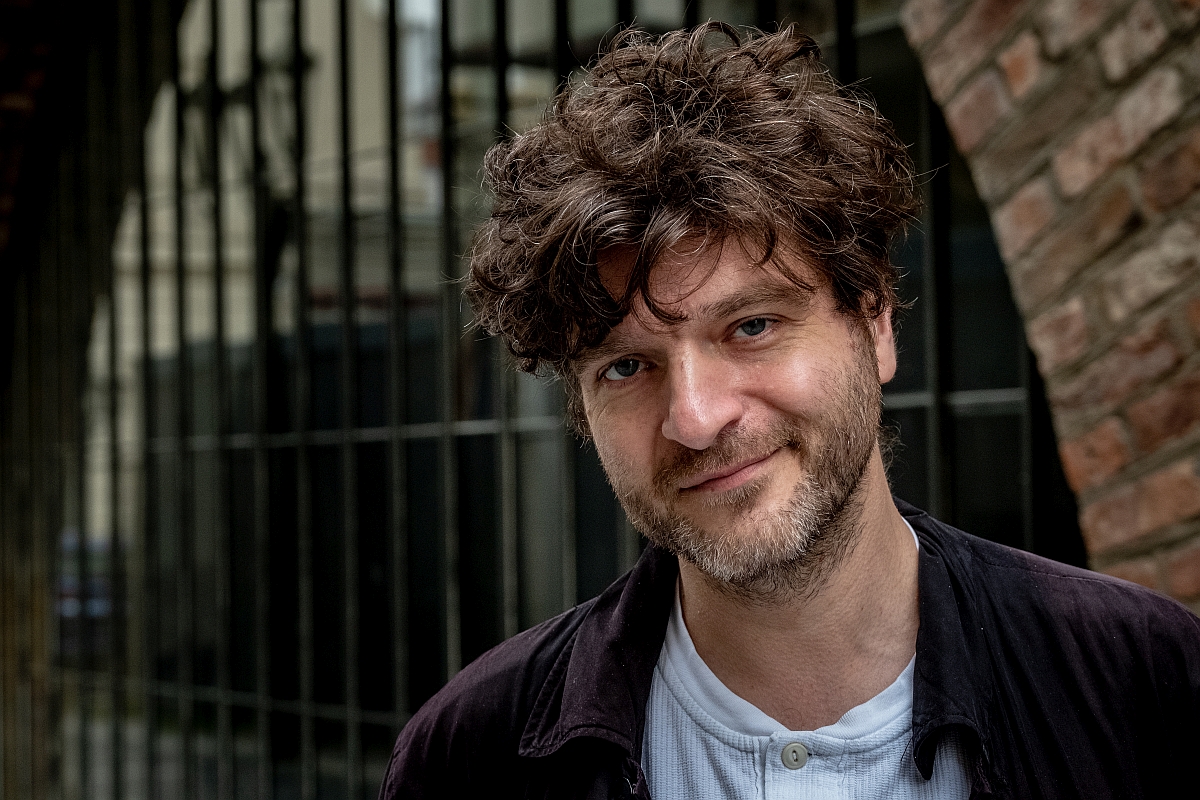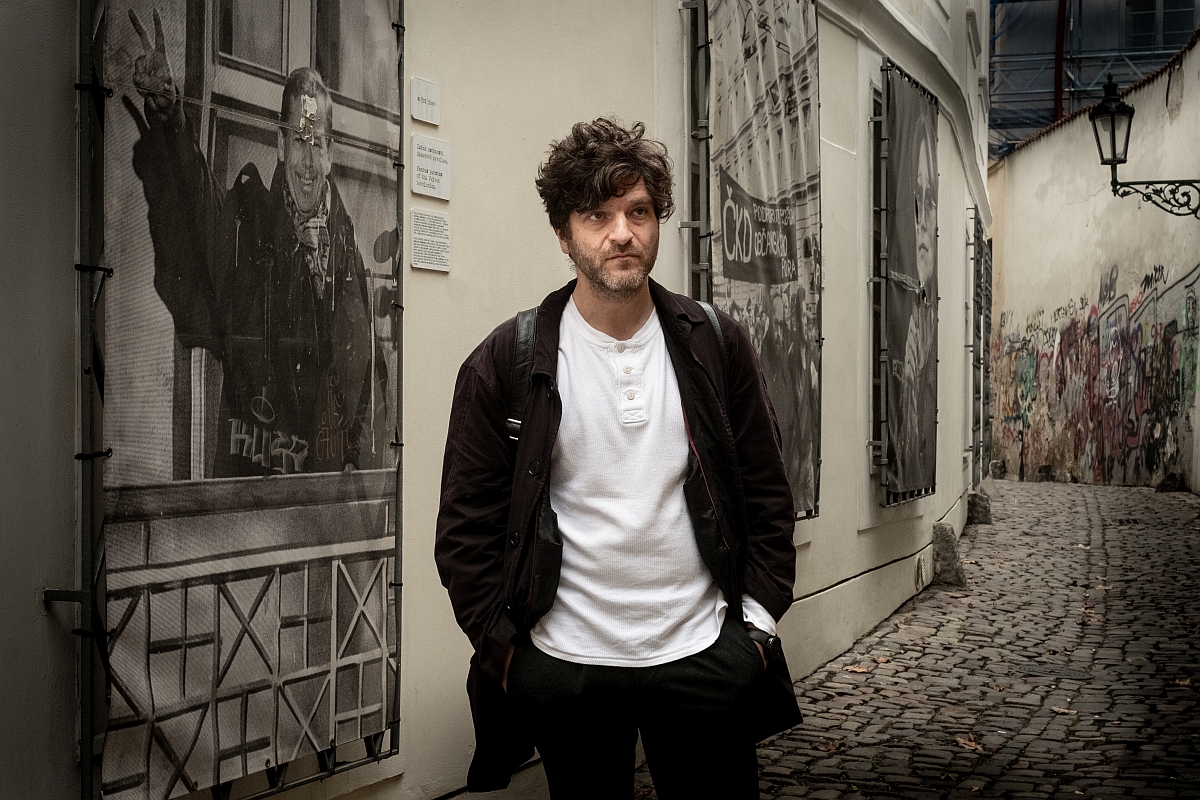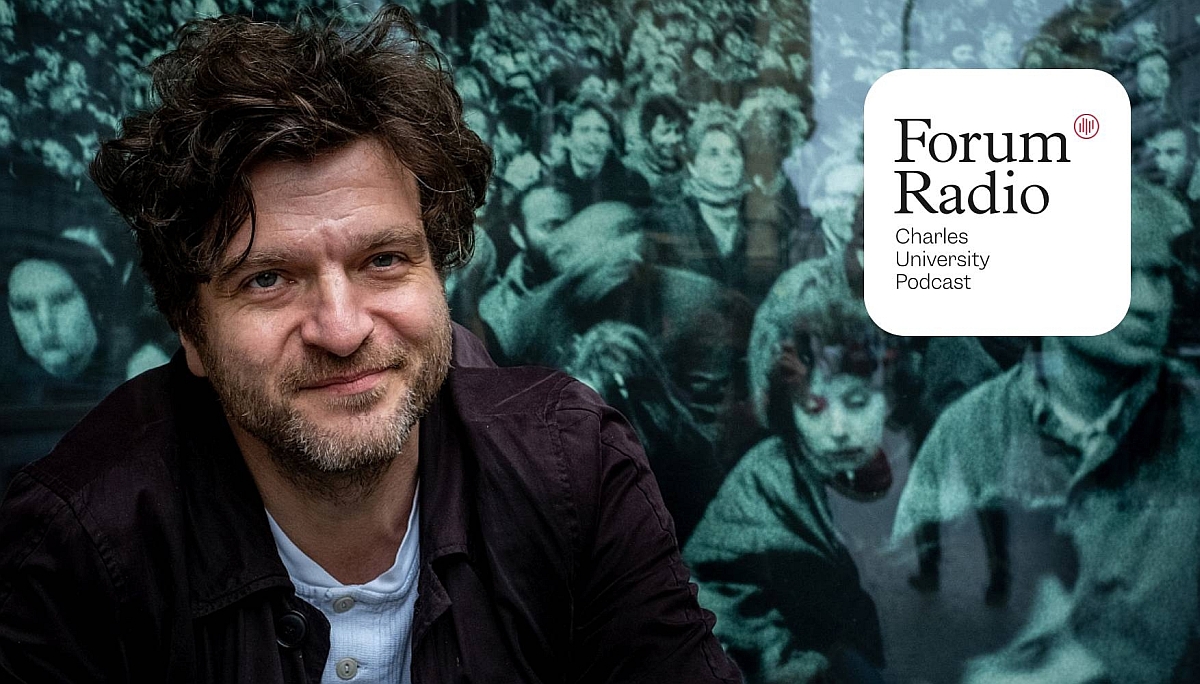This Thursday Czechs are marking the 33rd anniversary of the Velvet Revolution sparked when communist police brutally cracked down on students on 17 November 1989. Protests that erupted as a result swept the former regime from power and paved the way for a return to freedom and democracy. The once jailed dissident and playwright, Václav Havel, became Czechoslovakia’s first post-1989 president. How Czechs look back on those heady days now is the subject of today’s Forum Radio interview with well-known social historian, Neuron prize winner and associate professor, Jakub Rákosník.

Associate Professor and Neuron prize winner Jakub Rákosník in October 2022.
He discusses not only the revolution but how communist propaganda had raised doubts about dissidents like Havel years earlier, even as he was supported by key figures in the west. Unforgotten, also, is the crucial role played by Soviet leader Mikhail Gorbachev, and we look at aspects of regained freedom, social and economic transformation, and some of the political realities of today.
Excerpts from our interview:
No one saw it coming
When I was walking to school as a child, every morning I read on the wall of a factory in the neighbourhood "Together with Soviet Union forever!“ It was so obvious it would last. We could not imagine anything different. The famous biologist Stanislav Komárek often talks about his experience, very funny from our contemporary point of view. As an emigré he attended a meeting couple of days before November 17, 1989. There were the most famous political analysts from the community of Czechoslovak expatriates. And none of them expected such a quick fall of communist regime in our country. Alexei Yurchak wrote a famous historical book about late socialism with a very good title: “Everything was forever, until it was no more.” This title is very appropriate introspection into the mood at the time.
Factors that had an impact in Czechoslovakia
Important features that led to the fall of communism in Czechoslovakia could be divided into three areas. The first includes economic factors such as relative economic exhaustion coupled with the heavy burden of military expenses, and an ambitious social security system based on real full employment that was relatively expensive for the system of centrally planned economy. And also undermined its relatively low productivity of labour. Czechoslovaks were also aware and keen on western goods that could be gotten here only through a network of special shops called Tuzex.
Another aspect was a loss of promise or a better prospective future. Soviet-style communism was no longer very convincing.
And there was the Gorbachev factor. Gorbachev rejected the Brezhnev Doctrine that legitimized military intervention when socialism was in danger in particular country. So communist rulers lost their Soviet guardian. And he introduced perestroika. This concept of reform had lots of in common with ideas of the Prague Spring 1968. So Czechoslovak communists started to be very anxious and, it turned out, for good reason.
The crackdown on students on 17 November 1989
It was an accidental event. A matter of chance. Under the circumstances, mentioned before, it was an accidental trigger. But one with very explosive power. Ordinary people who had been passive were amazingly confronted with the recognition that “They are beating our children!” In this respect, I am very curious about recent affairs in Iran, whether this dangerous revolt of young girls and boys might mobilise Persian society as a whole.
As a dissident, Havel’s reputation was distorted by communist propaganda
In the case of Havel, he was seen within, for example, my parent’s circle with a certain kind of admiration but on the other hand also a some degree of mistrust. The mistrust or suspicion was effectively spread by communist propaganda, which built on half-truths. After all, Havel was from a rich or bourgeois background and a liberal freethinker with contacts in the West, therefore, it followed, according to the communists playbook, that he was a “subversive intellectual”. The communists spread the idea of sexual promiscuity in this milieu of dissent. That was seen as a problem also by supporters from abroad, as it is mentioned in the book about Havel during Normalization written by Jiří Suk. In short, the regime was able to fully capitalise on a media image of dissidents as reckless and decadent.
Past revolutions and ours: the struggle for freedom and democracy
November 17th can be interpreted as a founding moment of our recent political world we are living in. And in this case, I can say for all of us - except a really small minority that rejected the Velvet Revolution generally right from the start. People satisfied with the post-revolutionary transformation, and you may be one of them, find commemoration of the day inspiring, as you said. People who are dissatisfied with the results of transformation very often say: "We did not ring the keys for this“. The starting point of all mentioned before is the same, but its consequences are framed and interpreted in a very different way.
All revolutions end when important issues introduced by the revolution are solved. From this point of view, the Hussite revolution did not end with battle of Lipany in 1434 when radicals were defeated, but by a religious settlement of Kutná Hora agreed in 1485. After that time, the issue of religion was solved for many decades. The French Revolution of 1789 did not end in 1794 when Jacobins were brought down, but 80 years later, in 1875. Since that time the republican base of the French regime was never again in dispute. In this way, the leading French historian Francois Furet interpreted the modern history of his homeland. With respect to this understanding of revolutions, I would place the end of our own Velvet Revolution in the year 2004 with our admission into the European Union. Contemporary disputes about liberal democracy and European integration today come from different sources and are not tied to the heritage of the Velvet Revolution: today, it is about economic and political globalization with no direct connection to the Velvet Revolution or the system of the state socialism.
Havel’s greatest contribution? Living in Truth
”Living in truth” is about courage to take over responsibility for one’s own life. Anyone trying to find simple solutions for complex contemporary problems, anyone who believes that someone else, a greater authority, has a duty to take care of them like a shepherd does his sheep, has forgotten the legacy of the Velvet Revolution and its most important lesson.
|
|
|
Jakub Rákosník was born in 1977. After studying law and history at Charles University, he worked in a law firm. He then began lecturing at the Faculty of Arts of Charles University, where he later became an associate professor. Rákosník also works as head of the Department of Economic Studies at Jan Amos Comenius University in Prague. He specializes in economic and social history of the 19th and 20th centuries. He has written a number of books on the interwar period and the Sovietization of the welfare state, and is co-author of Capitalism on its Knees. |








